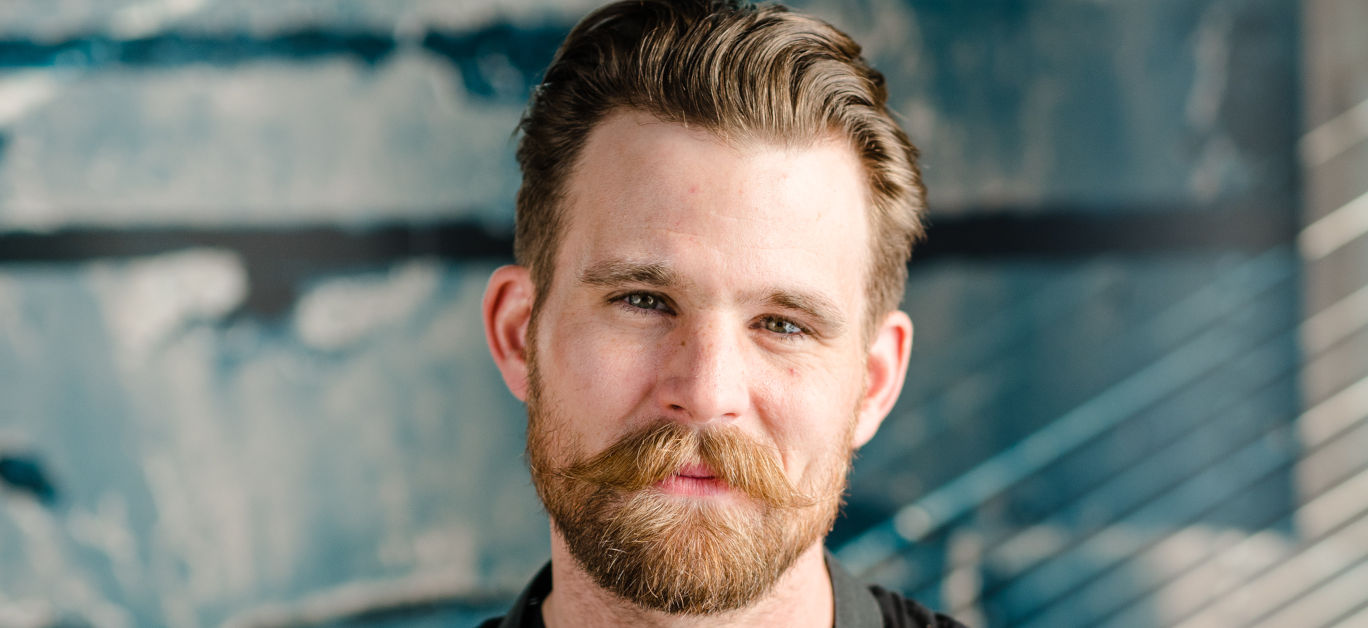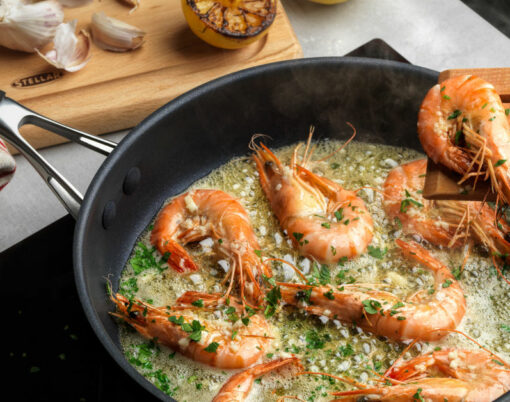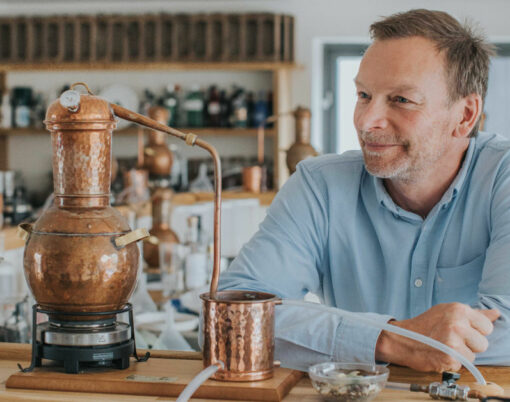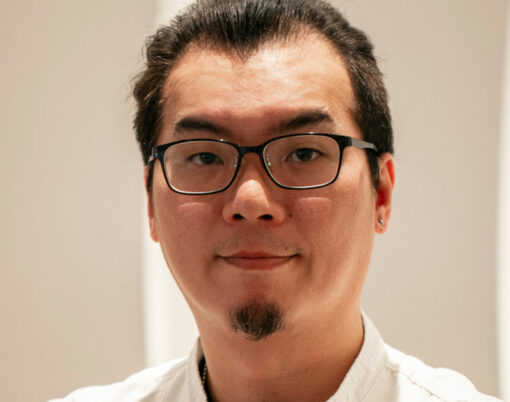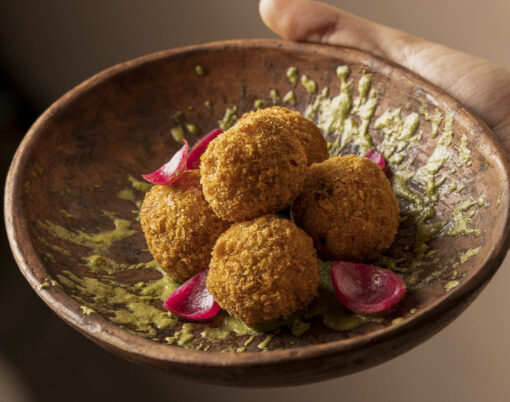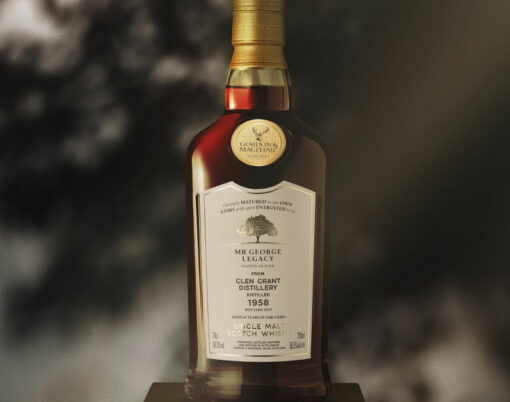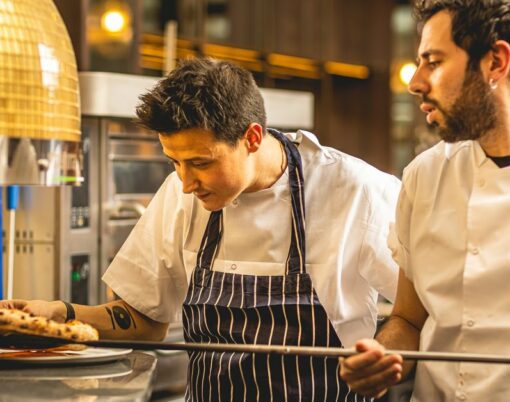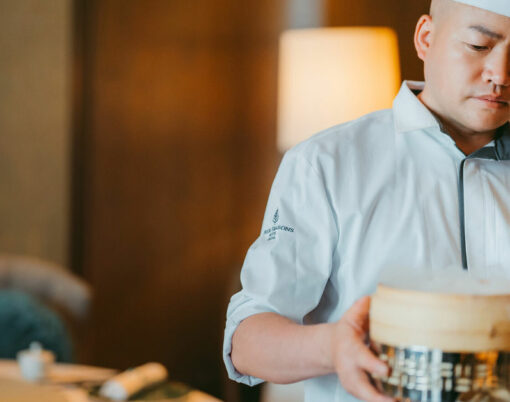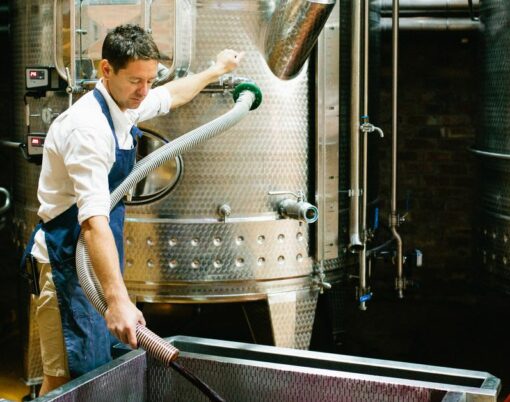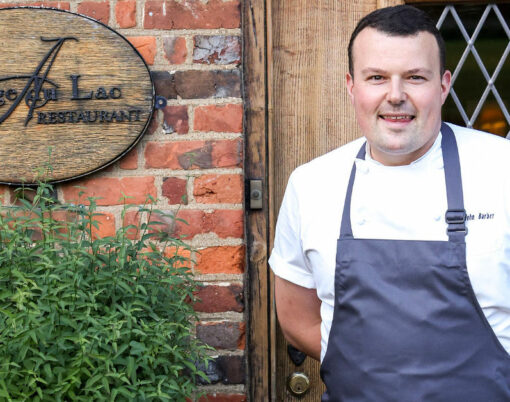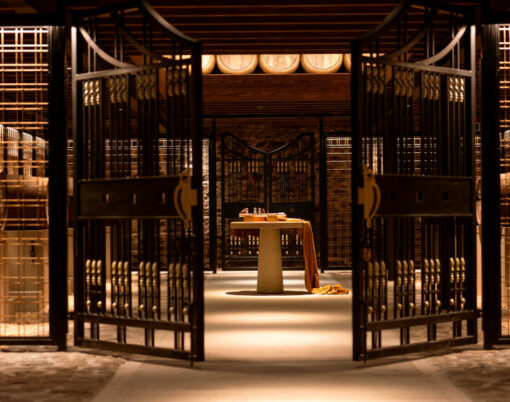“I just love to compete. I find that I’m just better as a person whenever I have a big pressure or a big goal ahead of me,” said Dale Mackay, co-founder of the Grassroots Restaurant Group and winner of Top Chef Canada season one.
Mackay has been back on the small screen as the 20th season of Bravo’s award-winning cooking competition made its way to London for the first ever Top Chef World All Stars, where winners and finalists from franchises around the world compete for the ultimate prize. The opportunity to take part in the 20th season arrived in the middle of the pandemic when Mackay found it tough to be passionate about food because of all the uncertainty that the restaurant industry was facing. “When this came up, it just gave me such a rush to be able to just be in the kitchen and focus on food,” he explained.
Mackay is no stranger to the English capital – he spent three years busting his chops in Gordon Ramsay’s London restaurants, where he also worked with Clare Smyth of three-Michelin-starred Core, who is a guest judge on the current season. On his former boss, Mackay says: “I love watching any of Gordon’s shows because I know him so well…he’s wildly entertaining. And he’s super intelligent. I love being around him. I’ve never seen someone so good with people.”
Mackay’s time with Ramsay was reflected in the dishes he prepared on his season of Top Chef Canada where he amazed the judges with exquisite fine dining dishes that eventually won him the title.
Since then, he’s moved back to his home province of Saskatchewan, where he owns and runs five restaurants with his business partner Christopher Cho and focuses on delivering a more casual, laidback dining experience. “I just wanted to go back and live where I felt calm and safe, and that’s Saskatchewan for me. There was also a big boom going on at the time with tons of young entrepreneurs, people moving back and setting up businesses. So it just felt like a really good time to go back and be with my family who still live here,” he explained.
Mackay talks candidly about being back in London for filming. He shares how nostalgic it was for him to drive down the streets and past areas that he remembered from 22 years ago. He speaks about his time in the city as a junior cook trying to make ends meet – buying the cheaper child tickets on the train, sitting in the park all day because he didn’t have money to do much else, and even heading to McDonald’s because they had a 50p Big Mac special on.
“To be driving around in a very different head space, and you know, essentially, being the chef that I was hoping to become in the same city years later, was pretty cool and surreal,” he says.
LLM writer Ina Yulo Stuve speaks to Mackay about how his son Ayden (who he named his globally-inspired comfort food restaurant Ayden Kitchen and Bar after) played a key role in his decision to move back home and why he risked it all to come back for Top Chef World All Stars.
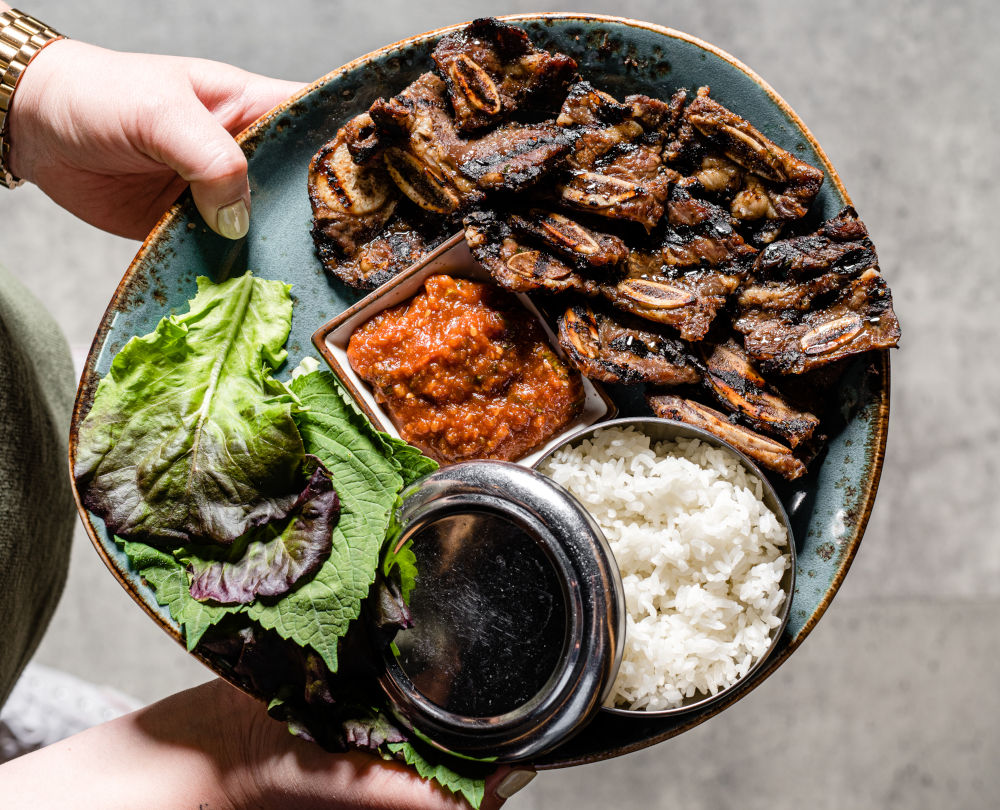
What made you decide to join this All Stars Edition of Top Chef?
It’s funny, after I won Top Chef Canada, which I guess was 12 years ago now, I’ve always kind of talked about this to producers and, I’d be like, you know, it would be great to do something where you have winners against winners. There are so many of these franchises now and to bring together the best of the best from Mexico, Germany, America, Canada, it’d be such a cool situation to be in and to be able to go against all winners. It’s like basically starting the season in the finale when everyone already knows the game and everyone’s been vetted.
For some chefs like yourself who’ve actually won their previous seasons, that’d be reason enough not to do this again because you’d risk coming off of that high. That didn’t scare you?
It’s almost like you’ve left it on a high note and you’re risking it all again for this new season, which I think is the right way to live. It would be safe and fun just to stay the winner of Top Chef Canada, but it’d be even better to be able to say that you won Top Chef World All Stars.
I liked getting to go to London and compete against all these people, I still have so many friends from season one of Top Chef Canada, and this is just another opportunity to be able to compete with some of the best chefs from around the world, to meet colleagues and really open the door up for collaborations and for so many things that come down the road hopefully.
And you used to live in London as well, right?
Yeah, it’s kind of where I feel like I really became a chef. I was a pretty junior cook when I moved there, and I moved there slightly on a whim. I was living in Whistler, BC in Canada and I got a VHS given to me by a friend that had Gordon Ramsay’s ‘Boiling Point’, which was a BBC documentary that they did on him as he tried to get three Michelin stars.
I saw that documentary and it was like the most intense thing I’d ever seen in my life, but I just wanted to be one of those chefs so bad. So literally three weeks later, I had a visa and moved to England and then I worked for Gordon Ramsay for about seven and a half years. I was in London for three of those, Japan for two, New York for two.
You’ve obviously travelled a bit, but then decided to eventually move back to Saskatchewan. What drove that decision and also what made you decide to launch all of your restaurants in the area?
I’ve been a single father to my son since he was about four or five. When I was living in Vancouver and I had restaurants there, we were living in a really nice area of Vancouver, and I just felt like he wasn’t getting the same upbringing then that I had. I had a fantastic upbringing; it was like one of those really safe, nice towns where we had a really nice river and forest and we used to go ride our bikes and smoke cigarettes and do bad stuff and always feel safe. It was just a place where you come home when the streetlights went on.
I really wanted him to have that, especially because he was my only child and it was just me and him. So that was a big driving force. But then I also wanted to go back and show what I had done since being abroad, and I was at the age where I’d lived in New York, Tokyo, London, Rome, and a bunch of places, and I felt like I’d kind of done that already and I didn’t have that huge need to commute an hour and a half every day. It just felt right.
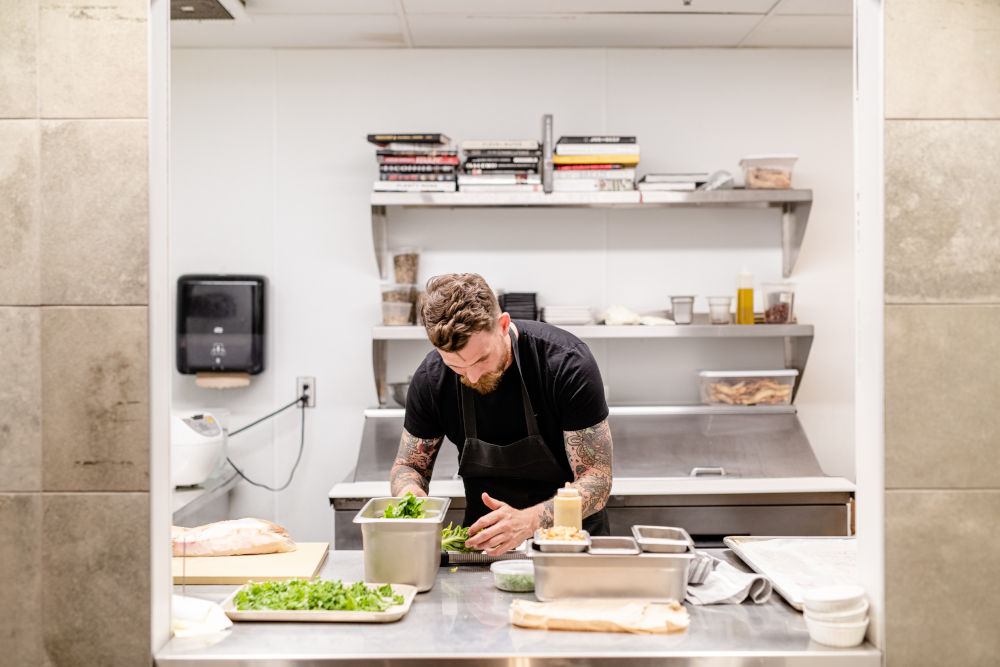
There’s quite a variety of cuisines featured on your menus. Were those types of cuisines already present in Saskatchewan or do you feel you were part of some kind of movement?
I think we definitely pushed it forward a lot, especially over the last 10 years, and I think a lot of people have followed suit to move back or have opened up some great independent restaurants. I lived in Japan for a long time, my business partner is Korean, we love both those cuisines so we actually have two restaurants where we do kind of a mix between Japanese and Korean food.
And Italian food is just something that I love and everybody loves, and so we have a really small Italian restaurant that’s got 30 seats, where it’s all fresh pasta, made-to-order. That’s probably more of our formal restaurant. And then the other two, we just kind of do whatever we want and it’s more kind of French and we use a lot of Thai flavours and flavours from around the world.
How do you deal with challenging diners who, although more educated than they probably were a few decades ago, can potentially make things difficult for you as a chef?
You know, it’s got its good and its bad. When you go to a table now and you chat with people and they know terms and they’re passionate and they do their research, that kind of side of it is very fun and often it brings people to your restaurants, so that’s great.
But then you can also go on the blogging or the review side of things and anybody with a keyboard can really just lay out a big review and it can be very nonfactual or it can be just straight opinion. But I mean, I can have an opinion on anything that I know very little about. I’m lucky, I always say I let my business partner deal with a lot of that because he’s in the front and I’m in the back, and there’s probably a good reason for that.
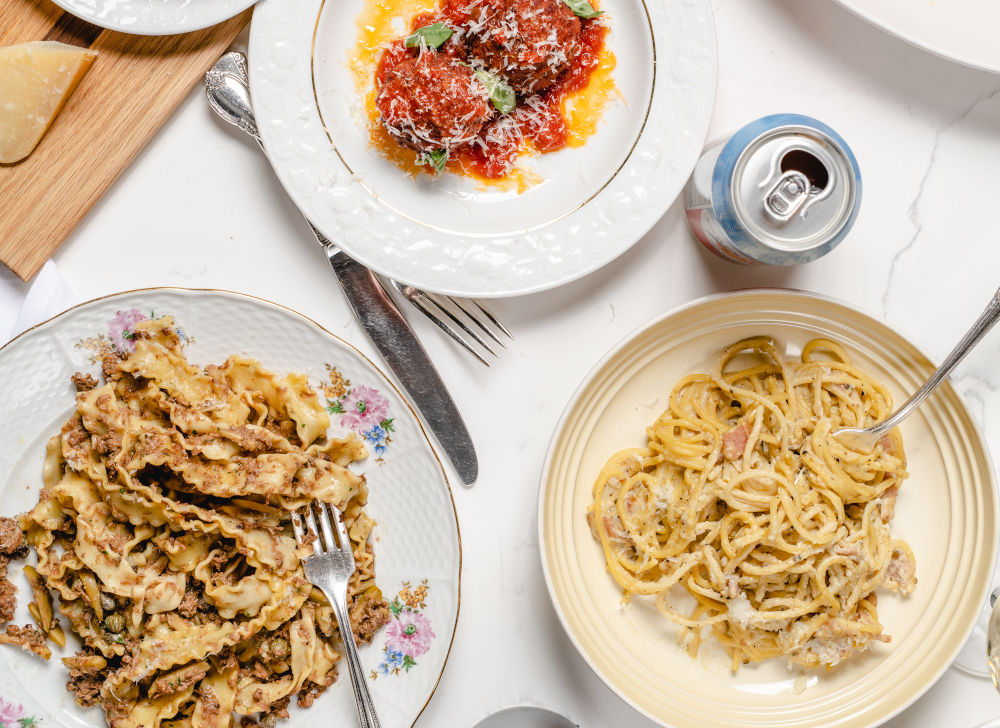
Aside from Top Chef, what are your favourite food TV shows, documentaries, podcasts?
I go in waves. I’ve never really been a cookbook chef, but I’ve watched some food TV. I do watch Top Chef. I do love it because it’s a show that I think all chefs respect and when you watch it, you can’t deny that it’s a very difficult thing to do. I’m also into the Anthony Bourdain shows, in the sense of going into different cultures and small villages, seeing products that I haven’t seen before, or trying things or seeing things I don’t even want to try, but it’s just about educating yourself on what’s the norm in these small towns.
But other food stuff kind of just frustrates me, if I watch cooking shows, I’m going to just think I don’t need to watch because they’re doing most things wrong and it’s just frustrating. I’m like that with recipes too. For Co-op, a grocery chain who I’m the chef for, I definitely take a lot of ownership in making sure I test those recipes numerous times to make sure they work, because it’s extremely frustrating for a home cook to go and buy all these products and then go home, make a recipe, and it sucks.
How do you think your cooking has changed from when you first came on TV in season one to now?
I’m a completely different person and chef for sure. Back then, I was so crazy focused. I was like a bull or a horse, I ran straight for what I wanted, which was great at the time and that’s why I think I won, but I was so focused only on fine dining. I feel like I’m a much better cook now because I do a lot of home cooking and recipe development.
Most of my restaurants are all pretty casual. With that being said, I don’t think I’d be nearly as good of a chef now if I didn’t just focus on fine dining back then, because your technique and your focus is so aggressive. But I’m a much nicer person to be around these days; I’m a lot more relaxed and I think I enjoy cooking and enjoy life a lot more. Back then, I was just so focused and competitive that I probably didn’t enjoy the experience as much as I could have at the time.
Anything to watch out for in the new season?
It’s going to be great from the very first challenge. I keep saying it’s like the finale starts in episode one because everybody is there gunning, there are no real weak links. Everybody’s ready to go. So I think just in general, don’t miss a thing. And one of my favourite things about the American version is Last Chance Kitchen, that’s something that the other versions don’t have, which is super, super cool.
I think watching the American version year after year, it’s always brought such an exciting part to the whole thing, so I’ll be watching everything, both the season itself and Last Chance Kitchen.
Factbox
Grassroots Restaurant Group
Website: grassrootsrestaurantgroup.ca
Instagram: instagram.com/chefdalemackay
Top Chef airs on Bravo, Peacock and NOWTV, catch up now to see how Dale gets on.












